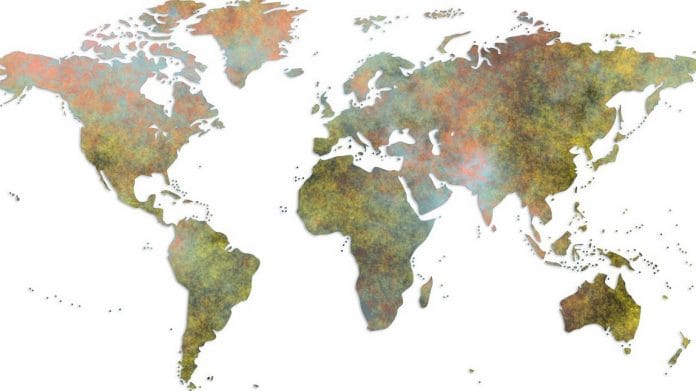Thank you dear subscribers, we are overwhelmed with your response.
Your Turn is a unique section from ThePrint featuring points of view from its subscribers. If you are a subscriber, have a point of view, please send it to us. If not, do subscribe here: https://englishdev.theprint.in/subscribe/
The global order has swiftly shifted to one increasingly defined by geopolitical risk. The persistent disruptions such as the pandemic in 2019 and the Russia-Ukraine conflict have dramatically restructured global dynamics and geo-economic relationships in 2024. These crises have exposed vulnerabilities, compelling nations to re-evaluate their international alliances. In the pandemic, the countries diversified their sources of imports to reduce their dependence on a single trading partner, aiming to safeguard domestic producers and citizens from foreign competition.
In this shifting landscape, the U.S. is strategically managing its competition with rival superpowers while managing its national interests. There is a noticeable shift towards renewed pragmatism, leading to new collaborations and blocs that guarantees economic freedom. Nations are increasingly pursuing their own interests and adapting to emerging realities without relying on Western intervention.
The foothold of the Western powers over the emerging markets is waning, evident in the ongoing NATO-Russia tensions and the complex multidimensional US-China relationship. Growing protectionism and multi polarity are fuelling Western concerns about de-globalization. Nevertheless, diverse cross-border economic engagements amid heightened geopolitical risks are fostering robust bilateral trades and realigning global power structures and economic policies.
There are some complexities form an intricate web of global developments.
Geopolitical Complexities
- Iran-Israel Conflict: This has been a longstanding and volatile issue with the potential to impact global energy markets significantly. Any escalation could not only destabilize the Middle East but also have ripple effects across the world, particularly in terms of energy security and global alliances.
- Ukraine-Russia Conflict: The recent Ukrainian incursion into Russian territory is indeed a serious development. While it may not immediately lead to nuclear escalation, it adds to the unpredictability of the conflict. Russia’s internal calculus balancing the use of extreme measures like nuclear weapons against the potential backlash and long-term consequences will be crucial in determining the trajectory of this war.
- Bangladesh Coup: Political instability in Bangladesh could lead to shifts in South Asia’s balance of power. Given its strategic location and growing economic importance, any significant change in its governance could affect regional dynamics, including relationships with neighbouring India, China, and other global players.
Economic Considerations
- U.S. Economic Outlook: The U.S. economy presents a mixed picture. The low unemployment rate and continued job growth suggest that a recession is not imminent. However, the weaknesses in manufacturing, housing, and consumer spending, coupled with high debt-to-GDP ratios, indicate vulnerabilities. The situation requires close monitoring as economic conditions could deteriorate if these warning signs persist or worsen.
- De-Dollarization and BRICS: The move towards de-dollarization by BRICS countries reflects a strategic effort to reduce reliance on the U.S. dollar and diversify economic dependencies. This could lead to a more multipolar global financial system, though the dominance of the dollar will be hard to unseat in the near term. The diversification into multiple currencies and gold is a prudent strategy for these nations amid an increasingly volatile global economic environment.
The need for continued vigilance and adaptability in the face of rapidly changing global realities is paramount. It’s a time of significant transition, and how nations respond to these challenges will shape the future geopolitical and economic order.
These pieces are being published as they have been received – they have not been edited/fact-checked by ThePrint


